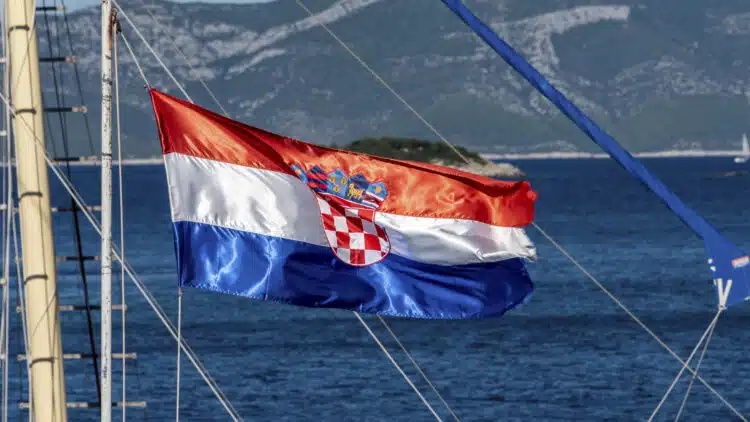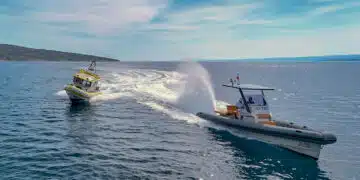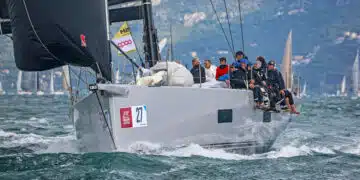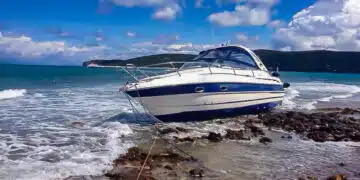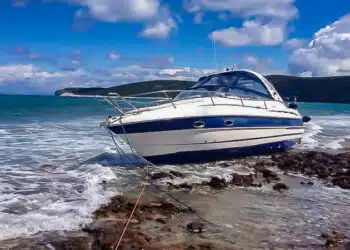On December 8, 2022, the Council of the European Union (EU) adopted a decision on the full application of the provisions of the Schengen acquis in the Republic of Croatia. As a result, the Republic of Croatia will become a member state of the Schengen area on January 1, 2023. As a result, there are changes related to the transition of internal and external borders. We asked the Ministry of Interior of the Republic of Croatia, how it will be from this date with the border controls on the waterway.
According to the Croatian Ministry of Interior, the decision in question provides, first of all, in Article 1(1), “that as of January 1, 2023, checks on persons at the internal and maritime borders with Croatia will be abolished”, and “the provisions of the Schengen acquis from the Annex will apply vis-à-vis Croatia in its relations with other member countries”. So far, so good. But what does that mean exactly?
First of all, the basis for the new handling of border formalities are the provisions of Regulation (EU) 2016/399, i.e. the “provisions of the State Border Control Act and the Aliens Act, which are fully harmonized with the Schengen acquis.” These would be fully applied from Jan. 1, 2023, the ministry added.
Border controls will depend on whether an external Schengen border is crossed
from January.
In this context, the obligation to carry out border controls would depend primarily on whether the crossing of the external border, i.e. entry/exit from/to third countries or from/to member states of the Schengen area; the nationality and flag of a ship generally has no influence on the obligation to carry out border controls.
Literally, the statement of the Croatian Ministry of Interior says: “Persons, regardless of their nationality, who are on board a sports and recreational vessel arriving or departing from a port in a member state of the Schengen area are not subject to border control and may enter a port that is not a border crossing point within the meaning of Annex VI. Point 3.2.4 of Regulation (EU) 2016/399.”
For sport skippers, border controls on the Croatian maritime territory will be eliminated as of 1.1.2023
Thus, as for motorists at the land borders with the new Schengen member Croatia, border controls will also be eliminated for sport skippers if they want to enter or leave the country by water. Prerequisite: the yacht must move within the Schengen area.
Something different applies only to yachts, which come from a third country: these ship are “obliged to enter by the shortest usual waterway, except for the port where the international border crossing is open for maritime passenger traffic,” according to the Croatian Interior Ministry.
Exceptions apply to yachts coming from a so-called third country
However, in exceptional cases, a recreational vessel could call at a port that is not a border crossing. This exception, however, is “limited to exceptions of circumstances including force majeure”; the ministry cites “extreme weather conditions, urgent medical problems, engine failure or other technical problems” as examples.
In this context, it is interesting to note that the Ministry of Interior of the Republic of Croatia also classifies “sporting events” as “exceptional circumstances that may justify the use of an exception.” This could mean that yachts that want to participate in regattas in Croatian waters and have duly registered for them may also be exempt from border controls, even though they come from a third country.
Only when entering or leaving a / or from a third country by water, there should continue to be checks on persons
However, as a general rule, when entering / or leaving a third country, the following would continue to apply: “upon arrival of the vessel in a port without a border crossing point, the competent port services shall immediately notify the border police, who shall take measures within their competence to check persons on the vessel in accordance with Annex VI 3. 2.5. Regulation (EU) 2016/399 and Article 17 of the Law on the Control of State Borders.”
What does this mean for sport skippers specifically? SeaHelp has asked the local police stations, the capitaneries and the Croatian customs.
According to the authorities involved in border traffic in Croatia, the following applies: in principle, the entire Schengen area is considered a “borderless area”, regardless of whether you are in international waters in the meantime or not. Example: Crossing from Croatia to Italy or from Sweden to Germany: in this case, neither clearance in nor clearance out is required, as there is no border crossing. Also a crew list is not necessary.
The only thing to note here is that no territory (land or water) of a third country may be navigated in the meantime. So, for example, if someone sails from Greece to Croatia, he does not have to clear out or clear in – if the territorial waters of Albania and Montenegro are not navigated (here it is important to avoid the twelve-mile zone and stay in international waters; international waters are not considered a third country).
Only in the case of departure from the Schengen area (entry into a third country), the following still applies: it must be completely cleared out – and then cleared in again
It was clarified that in the case of departure from the Schengen area (entry into a third country) must be cleared out in any case and a crew list must be prepared; in the respective third country, in which is entered, must then be declared again – as before – regardless of which flag is used, and what nationality the crew members have. In this case, the customs regulations must also be observed, since then also the relevant customs territory is changed, contact / involved authorities are in this case the police (personal control), customs (goods control) and the respective Kapitanerie (control crew list).
For more articles on the topic, see here.


